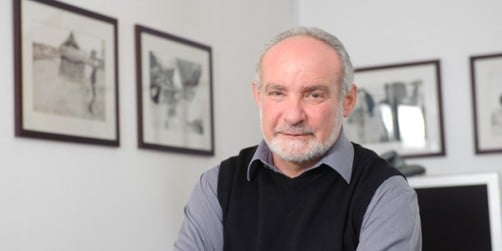UPDATE: A new global task force has been established to combat the escalating dementia crisis in Africa, with projections indicating that over 1 million people in South Africa alone will be living with the condition by 2050. This urgent initiative, led by Professor Stephen Tollman from Wits University, aims to implement the ambitious 6×5 plan to prepare the continent for the challenges posed by neurodegenerative diseases.
The Davos Alzheimer’s Collaborative has just announced this significant step as part of a broader effort to link brain health with economic resilience, highlighted in a recent article published in the prestigious journal Nature Medicine. With Africa’s population aging rapidly, the implications for health systems are critical.
Why This Matters NOW: As dementia cases rise, the impact on families, communities, and economies could be devastating. The 6×5 plan not only addresses immediate health needs but also seeks to enhance the quality of life for older citizens and boost economic opportunities. “Brain health runs through every stage of life and every sector of society,” states Tollman. “If we integrate it into what Africa is already doing well, we can protect our ageing citizens and sustain our economies.”
The task force, which includes experts from across Africa’s five geopolitical regions, has identified six key priorities to tackle brain health over the next five years:
1. **Advocacy and Literacy:** Expanding awareness and combating stigma surrounding brain health.
2. **Socioeconomic Transformation:** Recognizing that cognitive resilience is vital for productivity, creativity, and innovation.
3. **Resource Utilization:** Leveraging existing health infrastructures to improve dementia detection and care.
4. **Data Integration:** Harmonizing evidence across countries to ensure accurate policy-making based on burden estimates.
5. **Digital Innovation:** Using mobile technology and AI to provide low-cost, culturally adapted screening for millions.
6. **Sustainable Funding:** Ensuring brain health is included in universal health coverage and national development goals.
As the task force begins its work, it draws on decades-long research from the SAMRC/Wits-Agincourt Research Unit, which has been documenting the health and socioeconomic conditions of adults aged 40 and older in resource-limited settings.
The unit’s findings underscore that brain health is shaped throughout the life course, beginning with maternal and child health, bolstered by education, and supported by mental well-being in adulthood. Early detection and intervention are crucial; the research highlights that factors like hypertension, diabetes, and social determinants significantly influence cognitive function.
With the rapid rise in conditions like hypertension and diabetes in areas like Agincourt-Bushbuckridge, the need for immediate action is clear. These health risks are not only linked to dementia but are also prevalent in communities facing significant health challenges.
The 6×5 plan represents a practical roadmap for the next five years, emphasizing that Africa has the necessary evidence, infrastructure, and partnerships to act decisively. By fostering a coordinated response, the continent can turn the challenges of an aging population into a source of resilience and innovative approaches to brain health.
As Africa stands at this critical juncture, the urgency to address brain health cannot be overstated. The implications for future generations, economies, and societal health are profound, making the success of the 6×5 plan not just a health imperative but a crucial element of sustainable development.
Stay tuned for further updates on this pressing issue as the task force mobilizes to implement its strategies across the continent.







